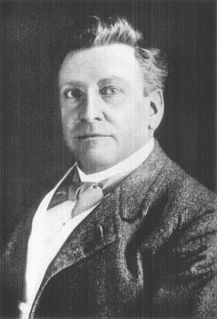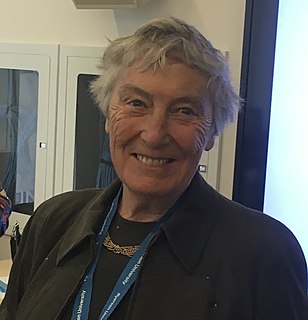This article needs additional citations for verification .(August 2009) (Learn how and when to remove this template message) |
A studentship is a type of academic scholarship.

This article needs additional citations for verification .(August 2009) (Learn how and when to remove this template message) |
A studentship is a type of academic scholarship.

In the US a studentship is similar to a scholarship but involves summer work on a research project. The amount paid to the recipient is normally tax-free, but the recipient is required to fulfill work requirements. Types of studentships vary among universities and countries. Studentships are sometimes known as teaching and research assistantships. Studentships are almost exclusively awarded to research students, preferably at the Ph.D. level.
In the UK, a 'studentship' is a common name for a PhD scholarship. At Christ Church, Oxford, however, the term studentship has the same meaning as the term fellowship has at other colleges, i.e. the office of a student or the duration thereof, or the students collectively.
Postgraduate education involves learning and studying for academic or professional degrees, academic or professional certificates, academic or professional diplomas, or other qualifications for which a first or bachelor's degree generally is required, and it is normally considered to be part of higher education. In North America, this level is typically referred to as graduate school.

A doctorate or doctor's degree or doctoral degree, is an academic degree awarded by universities, derived from the ancient formalism licentia docendi. In most countries, it is a research degree that qualifies the holder to teach at university level in the degree's field, or to work in a specific profession. There are a number of doctoral degrees; the most common is the Doctor of Philosophy (PhD), which is awarded in many different fields, ranging from the humanities to scientific disciplines.

A thesis or dissertation is a document submitted in support of candidature for an academic degree or professional qualification presenting the author's research and findings. In some contexts, the word "thesis" or a cognate is used for part of a bachelor's or master's course, while "dissertation" is normally applied to a doctorate, while in other contexts, the reverse is true. The term graduate thesis is sometimes used to refer to both master's theses and doctoral dissertations.

A graduate school is a school that awards advanced academic degrees with the general requirement that students must have earned a previous undergraduate (bachelor's) degree. A distinction is typically made between graduate schools and professional schools, which offer specialized advanced degrees in professional fields such as medicine, nursing, business, engineering, speech-language pathology, or law. The distinction between graduate schools and professional schools is not absolute since various professional schools offer graduate degrees and vice versa.

The Leverhulme Trust is a large national grant-making organisation in the United Kingdom. It was established in 1925 under the will of The Rt. Hon. The 1st Viscount Leverhulme (1851–1925), with the instruction that its resources should be used to support "scholarships for the purposes of research and education."
The Doctorate of Medicine and of Philosophy (MD–PhD) is a dual doctoral degree for physician–scientists, combining the vocational training of the Doctor of Medicine degree with the research expertise of the Doctor of Philosophy degree; the Ph.D is the most advanced credential in the United States. Other dual degree programs, exist; such as the joint MD-JD degree; where a JD is equivalent to the MD in a corresponding Doctor of Jurisprudence and Doctor of Medicine which are both professional degrees that are generally not considered doctorates internationally. The National Institutes of Health currently provides 50 medical schools with Medical Scientist Training Program grants that support the training of students in MD–PhD programs at these institutions through tuition and stipend allowances. These programs are often competitive, with some admitting as few as two students per academic year. The MCAT score and GPA of MD–PhD matriculants are often higher than MD only matriculants.

Peter Henry Karmel was an Australian economist and professor. He chaired the Interim Committee for the Australian Schools Commission that produced the report Schools in Australia in 1973.

Sankara Nethralaya is a not-for-profit missionary institution for ophthalmic care headquartered in Chennai, India. In the name "Sankara Nethralaya", "Sankara" is a reference to Adi Shankaracharya and "Nethralaya" means "The Temple of the Eye". Sankara Nethralaya receives patients from India and abroad. Sankara Nethralaya has over 1000 employees and serves around 1500 patients per day, performing over 100 surgeries per day. The annual revenue as per the taxes is close to US$100 million.
The Monbukagakusho Scholarship, formerly known as Monbusho Scholarship, is a prestigious academic scholarship offered by the Japanese Ministry of Education, Culture, Sports, Science and Technology. To date, some 65,000 students from approximately 160 countries and regions around the world have studied in Japan under the Japanese Government Scholarship program established in 1954.
Oliver Meredith Boone Bulman was a British palaeontologist. He was Woodwardian Professor of Geology at the University of Cambridge.
Suzanne Cory is an Australian molecular biologist. She has worked on the genetics of the immune system and cancer and has lobbied her country to invest in science. She is married to fellow scientist Jerry Adams, also a WEHI scientist, whom she met while studying for her PhD at the University of Cambridge, England.
The 1851 Research Fellowship is a scheme conducted by the Royal Commission for the Exhibition of 1851 to annually award a three-year research scholarship to approximately eight "young scientists or engineers of exceptional promise". The fellowship is open to all nationalities and fields of science, including physical or biological sciences, mathematics, applied science, and any branch of engineering. The fellowship can be held anywhere in the United Kingdom.
The degree of Doctor of Computer Science is an applied research doctorate in computer science awarded on the basis of advanced study and research in the field of computer science. While it is considered a terminal degree and requires coursework and research beyond the masters' level, the DCS is not considered equivalent to a Ph.D. or a Doctor of Science in computer science.

A Doctor of Philosophy is the highest university degree that is conferred after a course of study by universities in most countries. PhDs are awarded for programs across the whole breadth of academic fields. Because it is an earned research degree, those studying for a PhD are usually required to produce original research that expands the boundaries of knowledge, normally in the form of a thesis or dissertation, and defend their work against experts in the field. The completion of a PhD is often a requirement for employment as a university professor, researcher, or scientist in many fields. Individuals who have earned a Doctor of Philosophy degree may, in many jurisdictions, use the title Doctor with their name, although the proper etiquette associated with this usage may also be subject to the professional ethics of their own scholarly field, culture, or society. Those who teach at universities or work in academic, educational, or research fields are usually addressed by this title "professionally and socially in a salutation or conversation." Alternatively, holders may use post-nominal letters such as "Ph.D.", "PhD", or "DPhil". It is, however, considered incorrect to use both the title and post-nominals at the same time.

Pieter Timotheus "Tim" de Zeeuw is a Dutch astronomer specializing in the formation, structure and dynamics of galaxies. He was educated at Leiden, gaining a degree in mathematics in 1976 and one in astronomy in 1977. He graduated from Leiden with a PhD in astronomy in 1984. After stints in the US at the Institute for Advanced Study in Princeton and at Caltech, he returned to the Netherlands in 1990 to become professor of theoretical astronomy at Leiden. In 2003, he was appointed the scientific director of Leiden Observatory, and from 2007 to 2017 he was the director general of ESO. In 2009, he was awarded the Brouwer Award by the Division on Dynamical Astronomy of the American Astronomical Society. He is married to astronomer Ewine van Dishoeck. On 14 May 2018 at the annual Netherlands Astronomy Conference, he was awarded the Order of the Netherlands Lion.
The European Association for the Study of the Liver (EASL) is a European professional association for those researching liver disease.
Dorothea Sandars (1919-2002) was an Australian academic and parasitologist who specialised in fish parasites.

Gillian Elizabeth Wu is a Canadian Immunologist and the former Dean of Pure and Applied Science at York University. She is currently Professor Emerita in York University's Faculty of Science and Faculty of Health and also at the University of Toronto Faculty of Medicine.
Natalia Theodoridou is a Greek interactive fiction writer and scholar. He is the fiction editor at sub-Q interactive fiction magazine. He also has a PhD in Religious Studies to Media & Cultural Studies and has graduated from Clarion West Writers Workshop, an intensive writing program.
Lisa C. Nevett is Professor of Classical Archaeology, Department of Classical Studies at the University of Michigan, and Director of the Interdepartmental Program in Classical Art and Archaeology. Prior to joining Michigan she was a Lecturer in Classical Studies at The Open University, 1996-2003 and British Academy Postdoctoral Fellow in the Archaeology Department at Durham University, 1993-1996.
| This article relating to education is a stub. You can help Wikipedia by expanding it. |